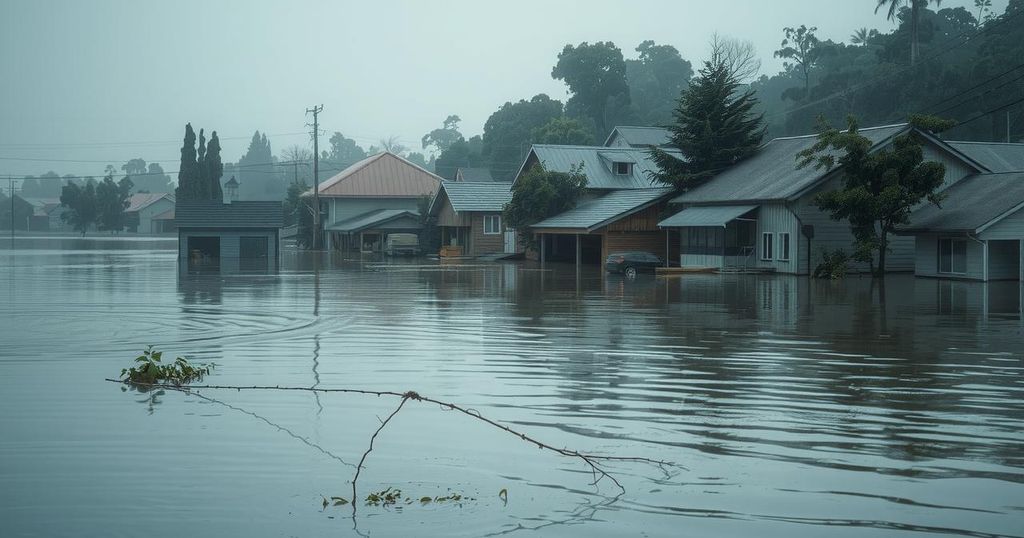Flooding Crisis in Tipuani: The Impact of Gold Mining and Climate Change

The village of Tipuani in Bolivia faces severe flooding due to heavy rains associated with climate change and detrimental gold mining practices. Approximately 500 homes are partially submerged, significantly affecting local residents who largely rely on mining for their livelihood. Experts highlight the urgent need to address the environmental degradation caused by mining, which exacerbates water vulnerabilities in an already climate-exposed region.
In the Bolivian village of Tipuani, nearly 500 homes are partially submerged due to severe flooding. This situation arose after heavy rains, attributed to climate change, compounded by the destructive impacts of gold mining. Rafael Quispe, a local miner, laments the transformation of his once-beautiful town into a disaster zone, experiencing floods every rainy season since 2020.
Tipuani’s reliance on mining, with 92 percent of residents engaged in the industry, is both a livelihood and a source of environmental degradation. The surge in gold prices has led to increased mechanical extraction, which is removing vital land and causing significant river alterations, prompting severe flooding. Alfredo Zaconeta from the Center for Labor and Agricultural Development Studies highlights the detrimental practices affecting the village’s stability.
Local residents, such as Sinforiano Checa, endure severe living conditions, having lost their homes to the floods. Former mining practices contributed greatly to the current crisis, according to Rolando Vargas, a cooperative president. The ramifications of mining are evident in the plight of the villagers, many of whom are struggling to cope.
In nearby Chima, children navigate polluted waters surrounding their shuttered school. Despite these challenges, villagers like Manuel Barahona insist on continuing to work, stating the need for survival in these desperate times. The impacts of climate change, alongside local mining activities, have intensified these challenges, as Bolivia faces significant water vulnerabilities exacerbated by global warming.
According to the 2021 Global Climate Risk Index, Bolivia is among the world’s most climate-exposed countries. Recent meteorological data indicates that January’s precipitation levels reached unprecedented highs, an anomaly for a period traditionally marked by dry conditions. Experts attribute these changes to broader climatic shifts resulting from environmental degradation in the region.
The plight of Tipuani underscores the profound consequences of unregulated gold mining and climate change on vulnerable communities. As flooding engulfs the village, residents face significant hardships, balancing their need for work with the environmental degradation that threatens their existence. With growing acknowledgement of their plight, it becomes imperative to address the dual crises of mining impacts and climate change to ensure sustainable futures for such communities.
Original Source: www.france24.com






